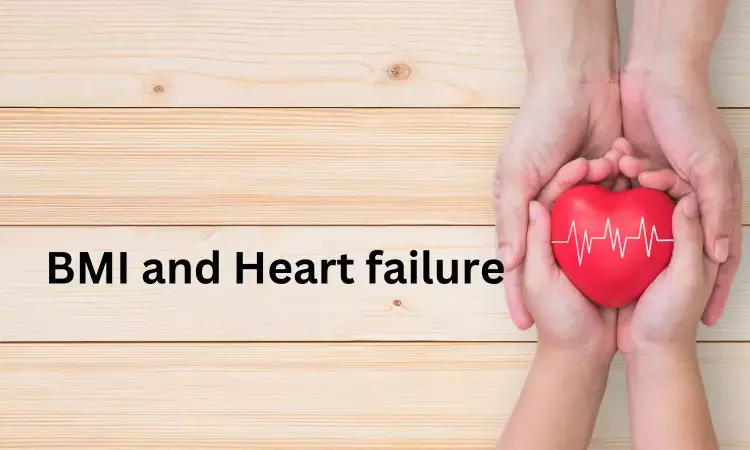- Home
- Medical news & Guidelines
- Anesthesiology
- Cardiology and CTVS
- Critical Care
- Dentistry
- Dermatology
- Diabetes and Endocrinology
- ENT
- Gastroenterology
- Medicine
- Nephrology
- Neurology
- Obstretics-Gynaecology
- Oncology
- Ophthalmology
- Orthopaedics
- Pediatrics-Neonatology
- Psychiatry
- Pulmonology
- Radiology
- Surgery
- Urology
- Laboratory Medicine
- Diet
- Nursing
- Paramedical
- Physiotherapy
- Health news
- Fact Check
- Bone Health Fact Check
- Brain Health Fact Check
- Cancer Related Fact Check
- Child Care Fact Check
- Dental and oral health fact check
- Diabetes and metabolic health fact check
- Diet and Nutrition Fact Check
- Eye and ENT Care Fact Check
- Fitness fact check
- Gut health fact check
- Heart health fact check
- Kidney health fact check
- Medical education fact check
- Men's health fact check
- Respiratory fact check
- Skin and hair care fact check
- Vaccine and Immunization fact check
- Women's health fact check
- AYUSH
- State News
- Andaman and Nicobar Islands
- Andhra Pradesh
- Arunachal Pradesh
- Assam
- Bihar
- Chandigarh
- Chattisgarh
- Dadra and Nagar Haveli
- Daman and Diu
- Delhi
- Goa
- Gujarat
- Haryana
- Himachal Pradesh
- Jammu & Kashmir
- Jharkhand
- Karnataka
- Kerala
- Ladakh
- Lakshadweep
- Madhya Pradesh
- Maharashtra
- Manipur
- Meghalaya
- Mizoram
- Nagaland
- Odisha
- Puducherry
- Punjab
- Rajasthan
- Sikkim
- Tamil Nadu
- Telangana
- Tripura
- Uttar Pradesh
- Uttrakhand
- West Bengal
- Medical Education
- Industry
U- shaped relationship observed between BMI and mortality due to heart failure

Obesity and Heart Failure (HF) is most closely linked to each other factors causing various complications such as hypertension, left ventricular hypertrophy, inflammation, hyperglycemia, sleep-disordered breathing, and renal dysfunction. However there is limited evidence in community populations across long-term follow-up.
Nicholas R Jones and team of researchers in a recent study aimed to examine the association between BMI and long-term survival in patients with HF in a large primary care cohort. The study reveals a U-shaped relationship between BMI and long-term all-cause mortality, researchers suggest a personalised approach to identifying optimal weight may be needed for patients with HF in primary care. Underweight people have the poorest prognosis and should be recognised as high-risk. The findings are published in journal Heart.
Study included patients with incident HF aged ≥45 years from the Clinical Practice Research Datalink (2000–2017). They used Kaplan-Meier curves, Cox regression and penalised spline methods to assess the association of pre-diagnostic BMI, based on WHO classification, with all-cause mortality.
The findings of the study are
• Out of 47 531 participants with HF (median age 78.0 years (IQR 70–84), 45.8% female, 79.0% white ethnicity, median BMI 27.1 (IQR 23.9–31.0)) and 25 013 (52.6%) died during follow-up.
• Compared with healthy weight, people with overweight (HR 0.78, 95% CI 0.75 to 0.81, risk difference (RD) −4.1%), obesity class I (HR 0.76, 95% CI 0.73 to 0.80, RD −4.5%).
• class II (HR 0.76, 95% CI 0.71 to 0.81, RD −4.5%) were at decreased risk of death, whereas people with underweight were at increased risk (HR 1.59, 95% CI 1.45 to 1.75, RD 11.2%).
• In those underweight, this risk was greater among men than women (p value for interaction=0.02).
• Class III obesity was associated with increased risk of all-cause mortality compared with overweight (HR 1.23, 95% CI 1.17 to 1.29).
Jones and team concluded that “The U-shaped relationship between BMI and long-term all-cause mortality suggests a personalised approach to identifying optimal weight may be needed for patients with HF in primary care. Underweight people have the poorest prognosis and should be recognised as high-risk.”
Reference: Jones NR, Ordóñez-Mena JM, Roalfe AK, et al; Body mass index and survival in people with heart failure, Heart Published Online First: 08 June 2023. doi: 10.1136/heartjnl-2023-322459
MSc. Neuroscience
Niveditha Subramani a MSc. Neuroscience (Faculty of Medicine) graduate from University of Madras, Chennai. Ambitious in Neuro research having worked in motor diseases and neuron apoptosis is interested in more of new upcoming research and their advancement in field of medicine. She has an engrossed skill towards writing and her roles at Medical dialogue include Sr. Content writer. Her news covers new discoveries and updates in field of medicine. She can be reached at editorial@medicaldialogues.in
Dr Kamal Kant Kohli-MBBS, DTCD- a chest specialist with more than 30 years of practice and a flair for writing clinical articles, Dr Kamal Kant Kohli joined Medical Dialogues as a Chief Editor of Medical News. Besides writing articles, as an editor, he proofreads and verifies all the medical content published on Medical Dialogues including those coming from journals, studies,medical conferences,guidelines etc. Email: drkohli@medicaldialogues.in. Contact no. 011-43720751


